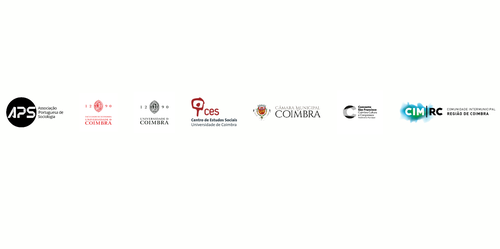Call for papers | Migrations, Ethnicity and Racism
Coordinators:
Sofia Gaspar [CIES-Iscte]
Pedro Góis [FE-CES/UC]
Nuno Oliveira [CIES-Iscte]
In a period of contemporary history when mobility has become part of the normal pathways of individuals, the great challenge is to think of migrations as object of Sociology and to know them in depth. Human migrations are one of the main axes of contemporary social dynamics, but at the same time they challenge physical and conceptual boundaries as well as collective representations. Integration, refugees, immigrants and migrants, migrant workers, mobility, migrant rights, xenophobia, racism, ethnic minorities are concepts that daily make their appearance in the media and challenge the social cohesion of societies. On the other hand, migrations call into question the methodological nationalism with which society (s) are researched, offering multiple perspectives, at different scales and almost always multipolar on the same object.
As a result, migration, as a social phenomenon, has taken a central place in public opinion and political debate. In many contexts this centrality is underpinned by an empirically unsupported discourse based on the manipulation of emotional appeals and the questioning of knowledge brought about by sociology (and other social sciences). Discussions around migrations and migrants (as a sociological category) have been fertile for the development of post-truth narratives and the exploration of stereotypes. Sociology, and in particular the Sociology of Migration, has sought to deconstruct this 'discourse of appearances' through the scientific analysis of migratory reality, its causes and its consequences. The dissonance between the assertion of post-truth and the scientifically observed and analyzed reality is a sign that sociological analysis has not always been successful.
Under the theme of the congress “Polarized societies? Challenges for Sociology”, of the XII Portuguese Congress of Sociology, we invite the submission of proposals which analyze, through a sociological perspective, the following subject areas:
- Contemporary international migrations
- Migrations from (and to) the European Union
- Emigration and imigration in Portugal
- Migrations in lusophone countries
- New migratory flows
- Migrations and intersectionality
- Refugees and asylum seekers
- Migrations, media and public opinion
- Politization of migration
- Climate migrations
- Privileged migrations
- Migrations and digital space
- Social integration and citizenship
- Ethnicity and identity
- Transnacionalism
- Xenophobia and racism
Communications that present and discuss sociologically recent empirical data, both quantitative and qualitative, will be particularly considered. Abstracts of the papers may be either academic (basic/pure or applied research) or non-academic (applied research, action research).
Proposals should include: aims, methods, results and conclusions. They must include three keywords that allow the presentations to be identified. The maximum character limit is 2500 (no spaces).
In addition to oral communications, it is also called for posters and visual documents (short films...).
The rules and deadlines to consider for the submission of abstracts, as well as more information about the XI Portuguese Congress of Sociology, can be consulted on the APS website at http://www.aps.pt.
The Thematic Section's coordination will select the best communications to be proposed for publication in the journal SOCIOLOGIA ON LINE.
PDF Version
